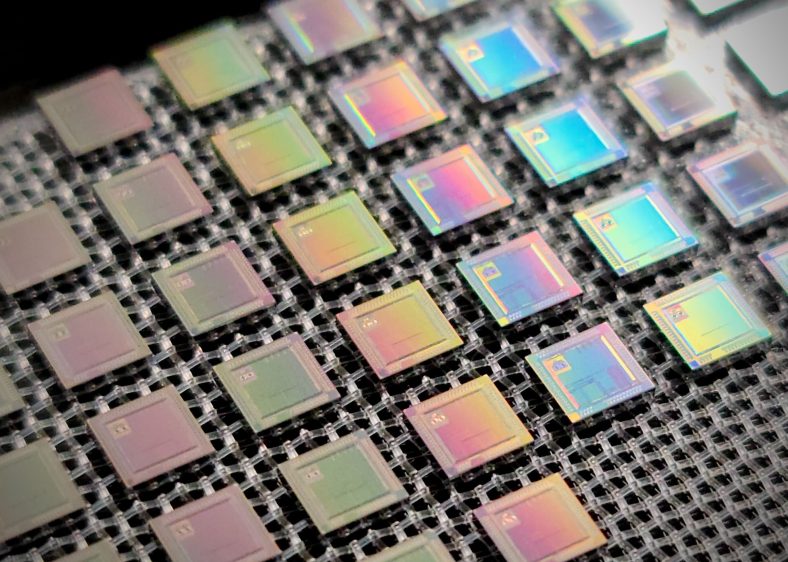
Portfolio company Quantum Motion recently announced record integration of quantum devices and a partnership with semiconductor manufacturer, GlobalFoundries. The company’s commercial silicon production addresses the need for scalability as quantum computers near the thousand qubit mark.
London, UK, 6 January 2024 – In a significant milestone for scalable quantum computing, Quantum Motion, a UK-based quantum computing scale-up founded by academics from University College London and Oxford University, has demonstrated rapid, large-scale characterization of quantum devices fabricated using commercial semiconductor processes. Quantum Motion has designed a silicon chip featuring an integrated array of 1024 quantum dots on an area of less than 0.1mm² and validated them in less than 5 minutes—at least 100 times faster than the current state of the art. The chips were manufactured by GlobalFoundries, a leading semiconductor manufacturer, with whom Quantum Motion has announced a partnership to develop quantum processors based on a scalable silicon platform.
This achievement, detailed in a peer-reviewed Nature Electronics paper, highlights the advantage of using an existing high-volume manufacturing platform for silicon quantum processors. Quantum Motion’s chip, Bloomsbury, was fabricated on GlobalFoundries’ 300mm 22FDX® platform leveraging its industry-leading capabilities such as power-efficient edge processing, wider temperature range (1K and below), and system-on-chip integration. The back gate bias capability of FDX further enables seamless cryogenic tuning and control, providing a significant advantage compared to bulk silicon solutions for readout and control operations.
The partnership between Quantum Motion and GlobalFoundries exemplifies the strength of combining deep quantum expertise with world-class semiconductor manufacturing. Quantum Motion operates as a fabless company, bringing cutting-edge quantum design skills to the table, while GlobalFoundries provides the fabrication capabilities to produce silicon quantum processors at scale. This collaboration ensures that the designs pioneered by Quantum Motion can be realized using robust and reliable processes, paving the way for high-volume production of quantum chips.
James Palles-Dimmock, CEO of Quantum Motion, said, “Our work with GlobalFoundries has enabled us to demonstrate that scalable manufacturing techniques are compatible with the stringent demands of quantum computing. This achievement shows that silicon-based quantum chips can be fabricated using established semiconductor processes, bridging the gap between quantum research and industrial-scale production.”
Ted Letavic, SVP and Corporate Fellow at GlobalFoundries, said,“This collaboration is an example of how GlobalFoundries is leveraging its differentiated technologies, such as our 22FDX technology platform, to drive advancements that will help shape the future of quantum computing. We are extremely encouraged by the results demonstrated by Quantum Motion which show that our process technology and our advanced 22FDX platform are robust enough to enable innovative quantum structures. We look forward to continuing our strong partnership with Quantum Motion to support their vision of a scalable monolithic quantum processor.”
Progressing from today’s small quantum processors to large-scale quantum computers requires an approach that can measure each qubit in a large array without needing a vast number of input/output connections to the chip, in exactly the same way that conventional CPUs have billions of transistors interfaced to a motherboard using only a few hundred input/output connections. The results from Bloomsbury confirm that silicon-based quantum chips are compatible with commercial semiconductor manufacturing processes, addressing key challenges in scaling up quantum computing. By integrating qubits and control electronics on the same chip, Quantum Motion is advancing towards its goal of creating practical quantum processors.
Quantum Motion plans to build on Bloomsbury’s success and the GlobalFoundries partnership, refining chip designs and delivering increasing levels of quantum/classical integration.
To find out more about Quantum Motion, visit their website or our portfolio page here.


